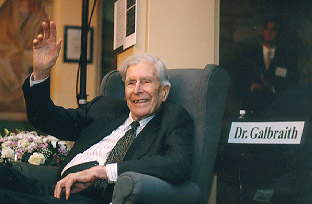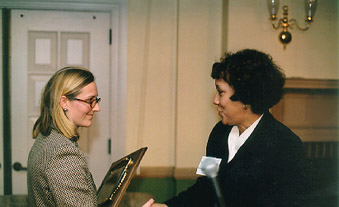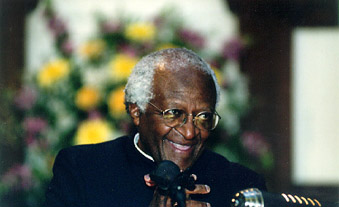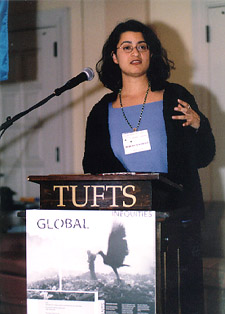 Paul
Farmer
M.D., Director, Program in Infectious Disease and Social Change, Harvard Medical
School; author, Infections and Inequalities: The Modern Plagues; Pathologies
of Power: Rethinking Health and Human Rights Paul
Farmer
M.D., Director, Program in Infectious Disease and Social Change, Harvard Medical
School; author, Infections and Inequalities: The Modern Plagues; Pathologies
of Power: Rethinking Health and Human Rights
 John
Kenneth Galbraith John
Kenneth Galbraith
Warburg Professor of Economics Emeritus, Harvard University; former U.S. Ambassador
to India; among his major works: The Affluent Society (1958), The New
Industrial State (1967), Economics & The Public Purpose (1973) and The
Good Society (1996). His work in progress is The Economics of Innocent
Fraud. He received the Presidential Medal of Freedom in 1946 and then again
in 2000.
 Lynn
Walker Huntley Lynn
Walker Huntley
President, Southern Education Foundation, Inc.; former director, Rights and Social
Justice Program, The Ford Foundation; co-editor, Beyond Racism: Race and Inequality
in Brazil, South Africa, and the United States
 Archbishop
Desmond Tutu Archbishop
Desmond Tutu
Winner of the 1984 Nobel Peace Prize, he is the Former General Secretary of the
South African Council of Churches and the Former Bishop of Johannesburg. He is
the author of Crying in the Wilderness, Hope and Suffering: Sermons
and Speeches, The Rainbow People of God, The Essential Desmond
Tutu, and most recently, No Future without Forgiveness. He was appointed
Chairperson of South Africa's Truth and Reconciliation Commission by President
Nelson Mandela.
Alumni Recognition Awards  Mehlika
Hoodbhoy Mehlika
Hoodbhoy
(F'94, EPIIC'94), Consultant on gender issues, human rights and reproductive
health; Co-Founder, Strategic Analysis for Gender Equity (SAGE); Former China/Hong
Kong Program Coordinator, Lawyers Committee for Human Rights
 P.J.
Simmons P.J.
Simmons
(A'89), Associate, Carnegie Endowment; Founder, Environmental Change and Security
Project, Woodrow Wilson International Center for Scholars; Co editor, Managing
Global Issues: Lessons Learned
|
